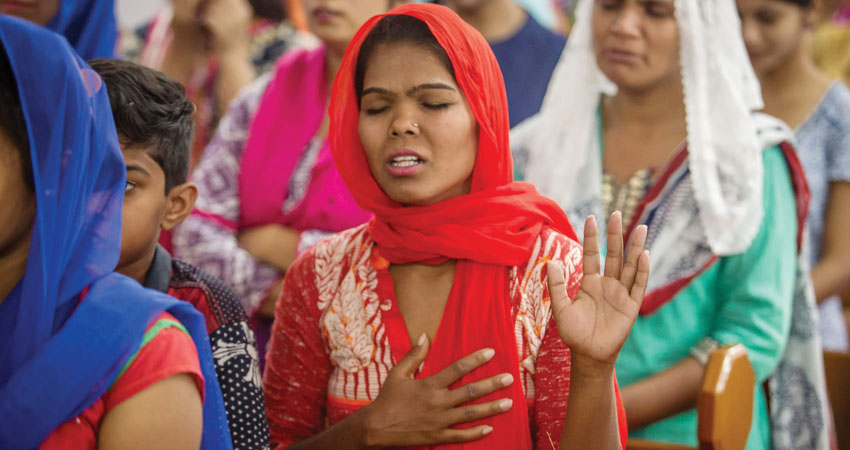Chesterton House Hosts Speaker from Open Doors
By Zachary Lee, Cornell ’20
Vaughn LeMoss, the vice president of Open Doors International, a non-profit organization that supports persecuted Christians in over 60 countries, was the featured speaker when the Chesterton House at Cornell hosted its Friday Conversation Series on April 19. The theme of the evening was “Solidarity with the Persecuted Church.” LeMoss exhorted the audience to use their college degrees and future influence to aid global missions. He weaved practical advice in between touching anecdotes from his testimony, all the while expanding the students’ vision of God’s kingdom.
LeMoss hit the ground running by demystifying the fallacy that missions work is set apart solely for those in vocational ministry or “super Christians.”
Open Doors International supports the persecuted church around the world.
“You can serve the Lord in whatever capacity you’re in,” he said. “So often we say to ourselves, ‘I need to become a pastor first’ or ‘I should go to seminary.’ There is nothing wrong with those paths, but do not discount the place where God has you now.”
LeMoss shared how a Cornell diploma will “propel” students onto a global platform.
“God does not waste anything,” Vaughn assured, noting how God used the Apostle Paul’s formal training, education, and Roman citizenship to advance the kingdom.
Yet, the ways that people try to share the Gospel message have shifted. Vaughn highlighted how, in the 40s and 50s, Western missionaries would be sent across the globe to various people groups and countries. “[Today], a lot of Christians go into countries as business people and use business as a method to present the Gospel,” Vaughn shared. “If you think about it, the boss of a company has more influence over his employees than the pastor. A pastor of a church may interact with an individual 4-6 hours a week, but the employer will interact with said person for over 40-60 hours a week! Who has the greater ability to speak into that person’s life?”
These new evangelism strategies are also accompanied by new forms of persecution. Vaughn, who has served in countries such as Tanzania and Israel, has experienced the dangers firsthand—yet he is also impressed by the faith of fellow believers who risk everything, including prison, to share the Gospel.
“When you see the faith of these people, you come away different,” he said.
Open Doors supports the persecuted church through the distribution of Bibles, study materials, discipleship training, and other resources.
At the Chesterton House series, Vaughn shared practical ways Cornell students can be more missions-minded. He talked about how the Apostle Paul would be envious of the modern-day university because, while he had to go to the nations, “the nations have come to us.” Specifically regarding international students, Vaughn challenged them to be bold and unashamed when it came to sharing the Good News, and not to be afraid of judgement. Being set apart can be a powerful witness to others because it is in those discrepancies of worldview that the foundation for honest conversations about faith and Christianity can take place.
Samuel Cantillo, Cornell ’19, was inspired by Vaughn’s talk.
“Learning about how God provides for those living much more difficult lives than us is a humbling reminder that God has placed me at this university, not for me to be self-serving, but to be selfless towards the church and those around me,” he said.
Likewise, Ryan Meng-Killeen ’20 was struck by how “Christians aren’t the only ones who suffer as a result of persecution. The church, both here and in persecuted nations, has a responsibility to love and welcome the people who come to explore Christianity, because those people are facing risks, too. Some seekers come from backgrounds where their friends and family would ridicule them or worse if they knew they were exploring Christianity.”
Cantillo appreciated learning about the interdependence of the body of Christ, especially when it comes to the persecuted church.
“When someone becomes a Christian, they now belong to a local and global body,” he said. “This united body is called the Church, and although it is unified, it is not uniform. Different parts of the body experience different struggles, and it is together that we are commanded to weep and rejoice.”












